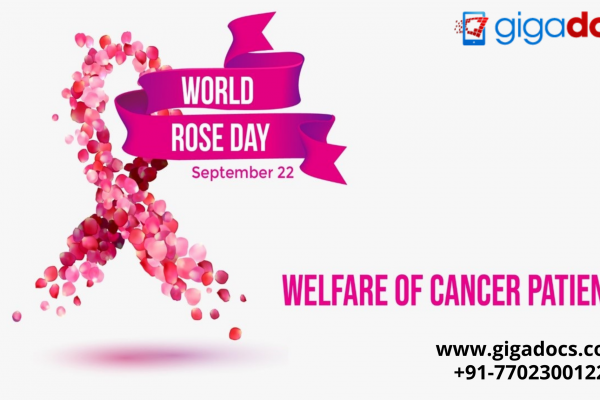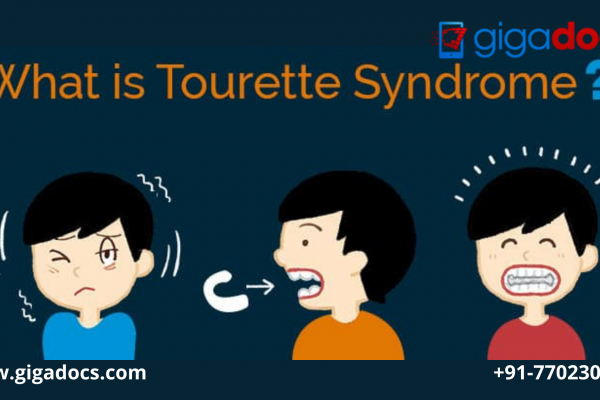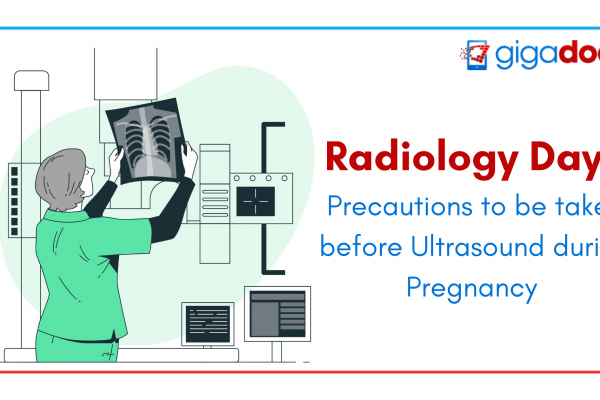We broke loose from slavery, oppression, and injustice 75 years ago. Even after all these years, we are still oppressed! Our contemporary yet crippling lifestyles have enslaved us.
For us Indians, Independence Day is a day of honor and pride. However, our societies are troubled by chronic diseases like diabetes, obesity, and cardiovascular disorders, as lifestyle disorders rise. Let us mark the 75th anniversary of our freedom by breaking free from these bad habits and live a healthy lifestyle:
- Smoking
Smokers are more likely to die from tumors of the lung, throat, mouth, bladder, and esophagus. Smokers are more likely to have heart attacks, respiratory disorders (emphysema, COPD, pneumonia), hypertension, stroke, car, aortic aneurysms, and peripheral vascular disease. Smoking pregnant women raise the likelihood of their baby being born with low birth weight.
- Not Getting Enough Sleep
Sleep deprivation is a big no-no. It can harm your immune system, intellect, and decision-making abilities. You’re also more prone to make mistakes, which can have a negative impact on your health. Sleep deprivation can lead to depression and make it tough to lose weight if you’re trying to reduce weight.
- Reduce Your Salt Intake
Keeping your blood pressure under control can be as simple as reducing your salt intake. One of the easiest ways of reducing sodium intake is to make meals with quality ingredients. Sodium levels in processed foods are often excessive. To reduce your sodium intake, even more, use herbs and spices instead of salt to enhance the flavor of home-cooked meals.
- Spending too Long Hours on the Computer
To begin with, if you already spend 8-9 hours every day in front of a computer at work, it will increase your screen time. Your eyes may be harmed by blue light emitted from the computer/ laptop screen.
- Long Periods of Sitting
Sedentary lifestyles are common in urban settings. We sit for hours on end in our chairs, especially those who work 9-5 jobs. Leg muscles might cramp and lose tone if they are seated for long periods of time. Furthermore, can alter blood circulation in your legs, leading to varicose veins and DVT (Deep Vein Thrombosis).
- Consuming Fried Foods
Processed or junk food is for sure tasty. However, if you’re a habitual eater, you may be experience symptoms like overeating, obesity, mood changes, and insomnia. Let’s make the switch to a cleaner diet before it becomes too late.
- Not Eating Fruits and Vegetables on a Daily Basis
We forget to consume fruits and veggies because of our hectic schedules. No other processed food can give us the vital nutrients which these foods can. Maintain a healthy diet by including fresh fruits and vegetables whenever possible.
- Having a Cup of Tea Before Going to Bed
Reduce the amount of caffeine you consume. Drinking a lot of tea and coffee can lead to insomnia, digestive issues, and hypertension in the immediate future.
Though caffeine makes you awake, after it leaves your system, you’ll have to deal with withdrawal symptoms.
- Minimal Physical Activity
Engaging in some form of physical activity will have a favorable impact on your health throughout the day. Regular exercise will help you lose weight and increase your vitality. Exercise also keeps your heart in good shape, lowers your chance of chronic diseases like breast cancer, and enhances blood flow to your brain. Regular exercise aids in the regulation of blood sugar levels.
- Spending an Excessive Amount of Time on the Phone
There will be texts, games, and social media updates; however, place your phone on the table. Period! Smartphones have taken over many things, but don’t allow them to take over your relationships.
- Wasting Food and Water
We know that most of India’s big cities will run out of groundwater in the next few years. Let us all do our part this Independence Day to save water and recycle it where it is required. Also, let us commit to not throw any food away and to help those who are hungry.
- Getting Up Late
Giving up watching Netflix until the wee hours of the morning is a good idea. A good night’s sleep is critical to your overall health. Your memory improves, your tension decreases, and you avoid weight gain when you sleep properly and on time.
- Trying to Sleep Without Taking Off Your Makeup
Ladies put an end to this bad habit! Your skin will suffer as a result of your idleness. Pore clogging, acne, blackheads, wrinkles, rashes—the list goes on and on. We understand you have a busy schedule but take 5 minutes to remove your makeup before going to bed.
- Using Headphones to Enjoy Loud Music
Using headphones to listen to blaring music can cause hearing loss. If you notice ringing in your ears, it’s a clear indication that the harm has started. Be aware of your surroundings. And if your neighbors can hear what you’re playing, the volume is unquestionably too high.
- Brushing your Teeth Before Going to Bed
Not Brushing your teeth before bed enables bacteria would cover your teeth the entire night. These bacteria digest food leftovers on teeth and under the gums. Acid production is a byproduct that destroys tooth enamel and causes cavities. During the day, saliva protects your teeth from these harmful acids.
- Ignoring Breakfast
Breakfast is also a perfect time to get in some much-needed nutrients, such as fiber and vitamins, to help you get through the day. According to research, breakfast skippers have a greater risk of hypertension, Type 2 diabetes, obesity due to insulin resistance and hormone control, and an elevated risk of heart attacks.
- Missing Ghee in Meals
Ghee is a high-fat, high-calorie meal. Vitamin A, omega-3 fatty acids, and conjugated linoleic acid are all found in abundance in ghee. It may also aid in the reduction of intestinal inflammation and the promotion of heart health. Despite its health benefits, overeating ghee can lead to weight gain and increase the risk of obesity.
- Being a Couch Potato
We can all agree that OTT platforms promise a lot of binge-watching time, but have you ever considered how much it affects your health if you skip even basic exercise and sit for hours watching your favorite shows?
- Constantly Eating
While occasional overeating isn’t necessarily a cause for concern, constantly eating when you’re not hungry or eating until you’re uncomfortable full could be a sign of binge-eating disorder (BED). Feeling hungry all of the time could be a sign of stress, lack of sleep, dehydration, or low blood sugar levels.
- Taking an Excessive Amount of Tablets
The term “popping pills” refers to the deliberate ingestion of a higher-than-recommended dose of a medication. Overdosing happens when a person consumes large amounts of one or more medicines that the body cannot metabolize, resulting in deadly brain or heart damage and other side effects. Over-the-counter or prescribed painkillers, anti-depressants, vitamins, supplements, weight reduction aids, and performance-enhancing medicines are the most commonly overused drugs.
- Eating Too Quickly / Not Chewing Thoroughly
You inhale more air when you chew too quickly, which can cause bloating and gas—slowing it down to thoroughly chew your meal aids digestion by breaking down larger food into easily digestible small portions.
- Wearing Tight and Fit Clothing
Tight clothing that presses against the abdomen, such as pants, belts, and compression undergarments, can be harmful, especially when someone overeats. Intragastric pressure causes acid reflux by pushing stomach acid back up through the lower esophageal junction, causing heartburn.
- Overindulging in Sweets
When you consume too much sugar, the increased insulin in your system might wreak havoc with your arteries throughout your body. It causes their walls to become inflamed, thicker than normal, and stiffer, which stresses and affects your heart over time. Heart illness, such as heart failure, heart attacks, and strokes, can result from this.
- Late Dinner
When you eat late, the calories you consume are not effectively absorbed. As a result, your body stores them as fat. Eating late prepares your body to store excess calories as fat, resulting in weight gain. You may even experience indigestion and heartburn as a result of this.
- Tightening Your Hair
If the hair is pulled back too firmly, it can break away from the roots, resulting in splitting, hair weakening, follicle damage, and hair loss, thus keep the braid loosely tied at the outset.
- Putting Personal Hygiene on The Back Burner
Self-neglect, or the lack of reluctance to attend to poor hygiene, can be life determinantal. Certain mental or emotional problems, such as severe depression and psychiatric disorders, are frequently accompanied by poor hygiene. Dementia is yet another common reason for poor personal hygiene.
- Not Replacing Your Toothbrush Regularly
If you continue to use an old toothbrush, it will be less effective at removing plaque from your teeth and gumline. Change your toothbrush every three to four months, or when it looks to be wearing out.
- Sitting in The Wrong Position
The muscles, joints, and ligaments are all stressed when we sit, stand, or lie in poor posture for any time, resulting in pain and damage, such as back, neck, and shoulder pain.
- Excessive Eating Out
Frequently eating out increases your risk of heart attack or stroke. That delicious pizza or Chinese may enhance the risk of heart disease by increasing fat, cholesterol, and sugar levels.
- Following Your Lunch With a Cup of Tea
Teas are acidic, which might make digestion difficult. If you eat protein with your meal, the tea’s acid will freeze the protein, making it difficult to digest. Tea consumed shortly after a meal also inhibits the absorption of iron by the body. Avoid drinking tea one hour before and after a meal.
- Napping Right After a Meal
Nutritionists recommend waiting three hours between your last meal and bedtime as a general rule of thumb, which enables digestion and the passage of stomach contents into the small intestine. It could help you avoid issues like nighttime heartburn and even insomnia. Allowing this time delay will lessen the likelihood of experiencing heartburn and GERD symptoms.
- Spending Time in Air Conditioning or Confined Areas
Lung illness is one of the potentially fatal health complications that rooms with air conditioning can cause. Other fatalities include dry skin, allergic rhinitis, allergy-triggered asthma episodes, dehydration, and headaches. Remember to get some fresh air every day by going for a walk or opening the windows for cross ventilation.
- Ignoring Routine Medical Examinations
According to studies, early detection and management can avert around 60-70 percent of diseases. An annual health screening ensures that your body’s state never catches you off guard. Because symptoms aren’t always obvious, a frequent health check-up is essential to watch any emerging sickness.
- Using Plastic Containers to Eat and Store Food
Some chemicals in the plastic can seep out and into the food and beverages, we consume. Some of these substances have been connected to metabolic disorders (such as obesity) and decreased fertility. When plastic is exposed to heat, this leakage can happen even faster and to a greater extent, which means that just microwaving leftovers in those plastic takeaway containers could tell you to an even larger amount of potentially dangerous chemicals.
Customized Healthcare with Gigadocs
On this 75th Independence day, Gigadocs wishes all its patrons a very Happy Independence Day and extends customized expert teleconsultation digitally by expert doctors registered on the Gigadocs app.
Our patrons can also avail themselves of health record maintenance and complete healthcare management facilities by downloading and booking their next digital consultation on Gigadocs.
Download the Gigadocs app from-
- IOS App – apple.co/2W2iG4V
- Android App – bit.ly/33AQoRC
To know more e-mail, at info@gigadocs.com




